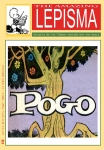
STOCKHOLM, Sweden (AP) -- Two European scientists won the 2007 Nobel Prize in physics on Tuesday for a discovery that lets computers, iPods and other digital devices store reams of data on ever-shrinking hard disks.
France's Albert Fert and German Peter Gruenberg independently discovered a physical effect in 1988 that has led to sensitive tools for reading the information stored on hard disks. That sensitivity lets the electronics industry use smaller and smaller disks.
''The MP3 and iPod industry would not have existed without this discovery,'' Borje Johansson, a member of the Royal Swedish Academy of Sciences told The Associated Press. ''You would not have an iPod without this effect.''
The two scientists discovered a phenomenon called giant magnetoresistance. In this effect, very weak changes in magnetism generate larger changes in electrical resistance. This is how information stored magnetically on a hard disk can be converted to electrical signals that the computer reads.
More over at: Nobel Prize in Physics 2007 Press Release or The New York Times.
That's Right,
HMK
Thanks to the New York Times




























































This is an incredibly cool illustration. And the rest of your work rocks too!
ReplyDelete